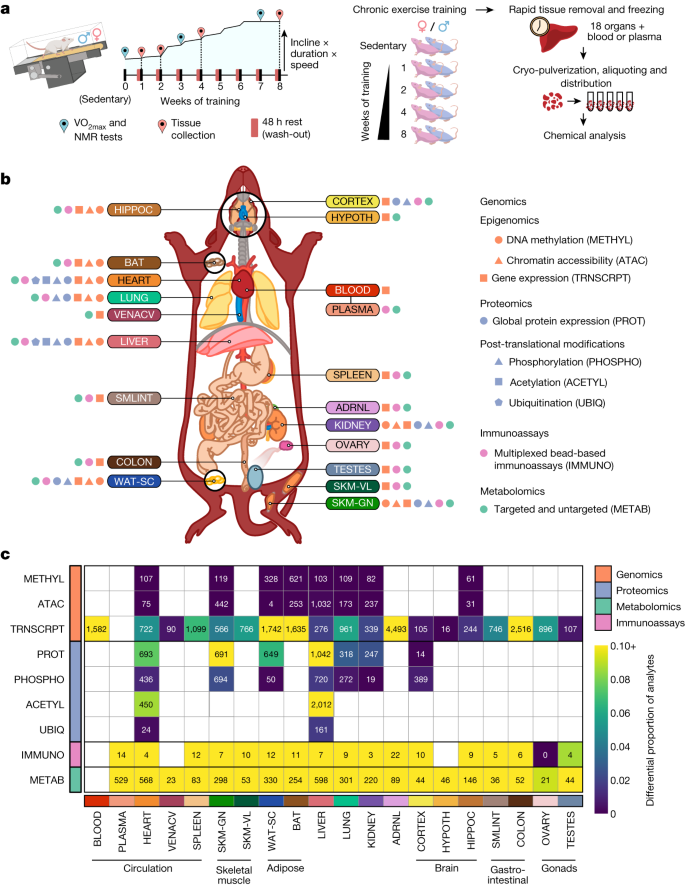2024-05-01 パシフィック・ノースウェスト国立研究所(PNNL)
<関連情報>
- https://www.pnnl.gov/news-media/first-steps-toward-whole-body-map-molecular-responses-exercise
- https://www.nature.com/articles/s41586-023-06877-w
持久的運動トレーニングに対するマルチオミック反応の時間的ダイナミクス Temporal dynamics of the multi-omic response to endurance exercise training
MoTrPAC Study Group,Lead Analysts &MoTrPAC Study Group
Nature Published:01 May 2024
DOI:https://doi.org/10.1038/s41586-023-06877-w

Abstract
Regular exercise promotes whole-body health and prevents disease, but the underlying molecular mechanisms are incompletely understood1,2,3. Here, the Molecular Transducers of Physical Activity Consortium4 profiled the temporal transcriptome, proteome, metabolome, lipidome, phosphoproteome, acetylproteome, ubiquitylproteome, epigenome and immunome in whole blood, plasma and 18 solid tissues in male and female Rattus norvegicus over eight weeks of endurance exercise training. The resulting data compendium encompasses 9,466 assays across 19 tissues, 25 molecular platforms and 4 training time points. Thousands of shared and tissue-specific molecular alterations were identified, with sex differences found in multiple tissues. Temporal multi-omic and multi-tissue analyses revealed expansive biological insights into the adaptive responses to endurance training, including widespread regulation of immune, metabolic, stress response and mitochondrial pathways. Many changes were relevant to human health, including non-alcoholic fatty liver disease, inflammatory bowel disease, cardiovascular health and tissue injury and recovery. The data and analyses presented in this study will serve as valuable resources for understanding and exploring the multi-tissue molecular effects of endurance training and are provided in a public repository (https://motrpac-data.org/).

